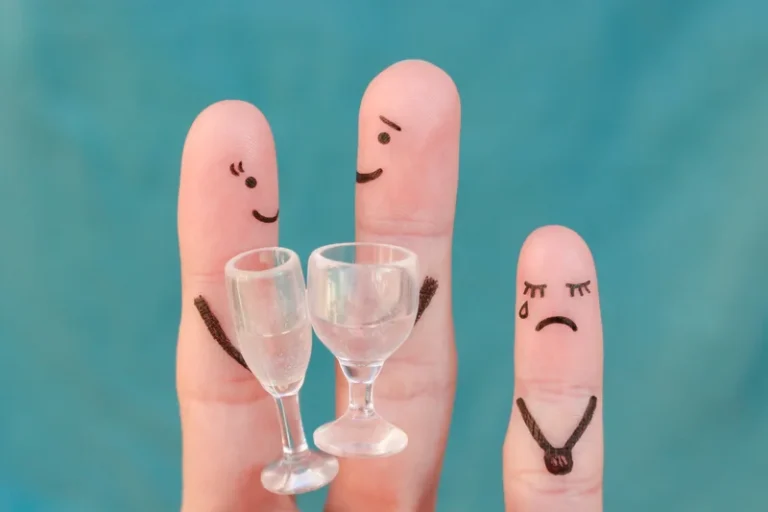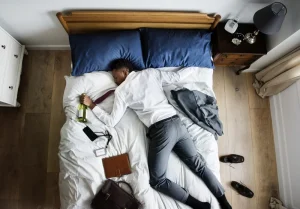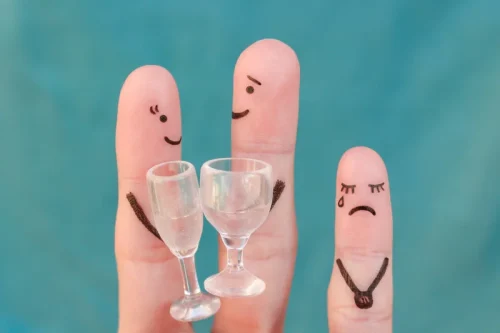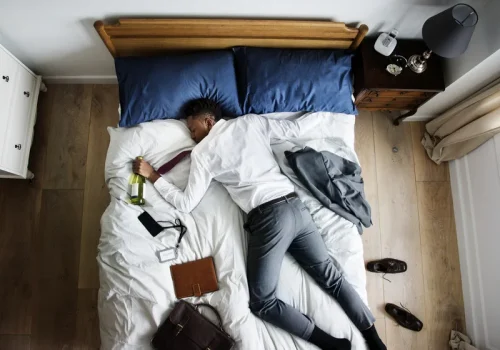Aucun produit dans le chariot.
LegalRoids
Alcohol and Your Health: What the Latest Science Says

toutefois, a prospective followup of 204 Danish COA’s and control subjects by Knop and colleagues1 demonstrated no differences between the 2 groups by age 20 with respect to either depressive or anxiety disorders. Addressing every struggle including depression, alcohol use disorders, and any other mental health condition concurrently is essential for effective treatment. Integrated approaches that target both conditions, such as cognitive-behavioral therapy (TCC) or medications for depression does alcohol make depression worse alongside therapy and support for alcohol use disorders, can be particularly beneficial. Seeking professional help from mental health professionals or addiction specialists is crucial for managing the interconnected challenges of depression and alcohol use disorders and promoting long-term recovery and well-being. toutefois, treating most alcoholics’ depressive symptoms might not require the use of antidepressant medications.
- According to the Diagnostic and Statistical Manual of Mental Disorders, Fifth Edition (DSM-5), if depression symptoms persist after one month without consuming alcohol, then a different depressive disorder diagnosis would apply.
- It’s worth noting that the relationship between antidepressants and alcohol can be particularly problematic.
- De même, when certain bacteria in the gut are altered, they can influence behavior, brain development, and neurotransmitter activity, such as serotonin and dopamine, which are crucial for mood regulation (4-5).
- These contemporary beds these days aren’t simply furniture; they’re tools for healing.
- Women are more than twice as likely to start drinking heavily if they have a history of depression.
Alcohol and your health: Risks, avantages, and controversies

Fast-forward to today, and we are facing a similar wake-up call—this time with alcohol. If depression and mental health are your main struggles, we also offer residential mental health treatment for more severe mental health issues and outpatient mental health programs for ongoing support. Our passionate team is always available to amphetamine addiction treatment walk you through your treatment options and help you take the first step into a brighter tomorrow. Surtout, remember that recovery is a journey, and your progress may not always be linear.
The Power of Mental Health Anxiety Memes: Finding Humor and…

Whether you choose to cut back completely, consume on occasion or take periodic breaks throughout the year, having this knowledge allows you to make choices that align with your health goals. The conversation about alcohol is evolving, and now’s the time to truly ask ourselves what role it plays in our lives and whether it’s time for a change. It’s also important to note that non-clinical depression can sometimes progress to clinical depression if left untreated or if its underlying factors worsen.

Postmortem Studies: Then and Now
Its functionality is largely determined by the balance of neurotransmitters, which are used to transmit signals between nerve cells. Alcohol disrupts this balance, and a person does not die immediately just because the brain manages to adapt to the changes. There are signs that depression and alcohol dependency may be impacting your or a loved one’s health and well-being, Anand says.
Problem Solving and Cognitive Control Processes: Then and Now
The expansion of the fluid-filled spaces of the brain was interpreted as a sign of local tissue shrinkage rather than as irreversible tissue loss (à savoir, atrophy) (Ron et al. 1982). Alcohol misuse and depression are serious conditions that you shouldn’t ignore. If you think you have a problem with either, talk to your doctor or therapist.

toutefois, this can be very dangerous if you drink daily at high levels, or have been drinking for a long time. Later controlled studies generated objective evidence for an age–alcoholism interaction, in which older alcoholics had more enlarged ventricles than would be expected for their age (Jernigan et al. 1982; Pfefferbaum et al. 1986, 1988). Relationship between alcoholism, balance with and without use of stabilizing aids, and the cerebellar vermis. Balance testing is conducted using a force platform, which detects sway as people attempt to stand still. Study participants try to maintain quiet balance for 30 seconds under different experimental conditions. When no stabilizing aids can be used, the sway paths are quite long, especially in alcoholics (see stabilograms on the left).
Effects of Alcohol Use
- The regret or guilt from these actions can worsen existing mental health conditions and create a deepening sense of hopelessness.
- By improving your diet now, you’re not only supporting your own well-being but also helping to shape a healthier gut and mind for future generations.
- Experts say that women are more likely than men to overdo it when they’re down.
- “Chronic drinking lowers the production of white blood cells, your body’s natural defense system, increasing the risk of illnesses like pneumonia, tuberculosis and even COVID-19 complications,” she emphasizes.
- If you have a sibling or parent with AUD, then you are three or four times more likely than average to develop the disorder.
Blackouts happen because the alcohol has stopped your brain from making new memories. It is also an early sign that alcohol is damaging your brain and that you might be alcohol dependent. If you don’t get hangovers when you drink, this is not necessarily a good thing. Not getting hangovers can be a sign that your body has got used to you drinking a lot, and might mean that you have become dependent on alcohol. toutefois, you should drink water and avoid drinking alcohol again until your body has had time to recover properly. If you are worried that alcohol is affecting your health, or that it might interact with your medication, speak to your GP.
- », the answer is yes—alcohol consumption can directly worsen both conditions by altering the brain’s chemical and structural balance.
- If you’ve become physically dependent on alcohol, managed withdrawal under medical supervision may be necessary to safely begin the treatment process.
It is also important to remember that some studies indicate a potential relationship between alcoholism and anxiety/ depressive disorders. en outre, alcoholism and these psychiatric disorders may operate together within some families, or individual instances may occur whereby a person develops alcoholism as a direct reflection of a preexisting psychiatric syndrome. Environ 4.05% of people worldwide suffer from anxiety disorders, which negatively influence millions of people’s everyday functioning and quality of life. The World Health Organization states that worry can result in a number of health problems, such as cardiovascular disease, hypertension, and impaired cognitive function.
Quick Tips for Better Gut Health and Mental Well-Being
Alcohol use disorders may be mild, moderate, or severe, depending on the combination of symptoms you’re experiencing, but drinking problems can exist regardless of a clinical diagnosis. The Centers for Disease Control and Prevention has found that 9 hors de 10 adult binge drinkers don’t have a severe alcohol use disorder, but that doesn’t mean alcohol isn’t a problem for them. Drinking to cope with depression, no matter if you have an alcohol use disorder, is concerning.
